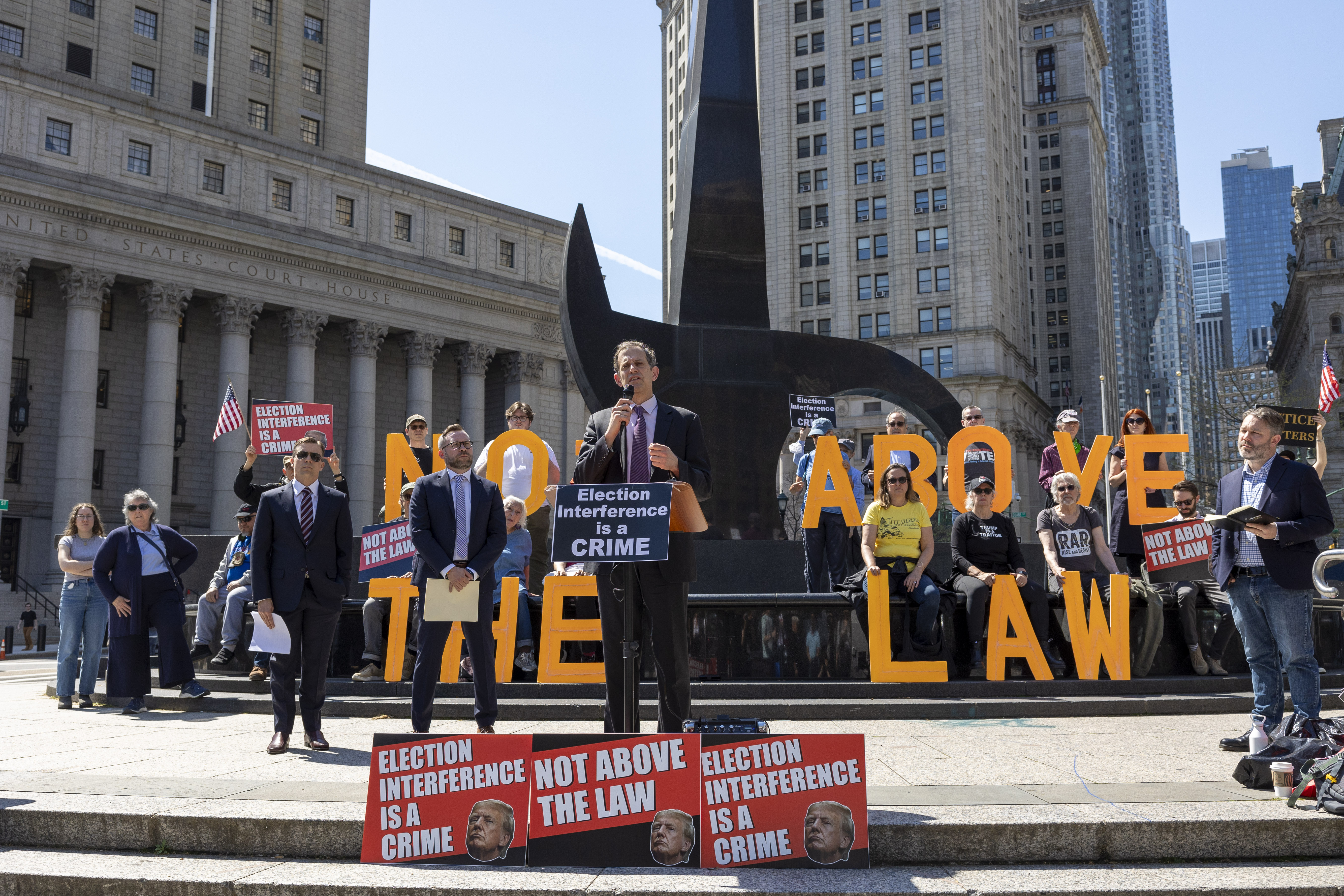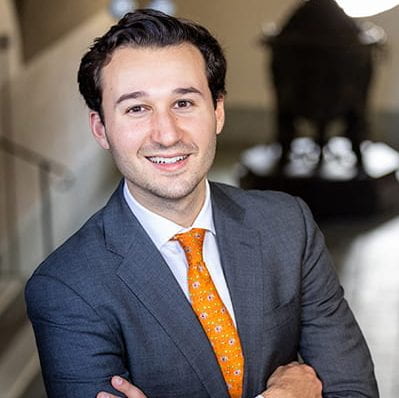Trump’s Classified Documents Case Moves Public Opinion. Now Voters Are Unlikely to Hear It.
Republicans and independents who heard from Trump’s federal prosecutor became more supportive of the prosecution. Trump’s anti-prosecution rhetoric, by contrast, failed to increase support for the former president or for retribution.

Published by The Lawfare Institute
in Cooperation With

A federal judge granted former President Donald Trump a major legal victory on Monday by dismissing the entire criminal case over Trump’s handling of classified documents. Now, the odds are vanishingly slim that the prosecution will go to a jury before Election Day.
Could this prosecution have shifted public opinion—and by extension, will the judge’s dismissal of the case matter for November’s election? After Trump was found guilty of 34 criminal counts this May, commentary has proliferated about how Trump’s prosecutions may move public opinion, whether by reducing support for Trump or galvanizing Republican demands for retribution. Yet data-driven, academic research has been relatively scarce.
Furthermore, while recent commentary has focused on Trump’s conviction in New York for hush money payments, experts widely view the federal charges against Trump—involving his alleged attempt to overturn the 2020 election and retention of classified national security documents—as more serious. Could those federal prosecutions change voters’ minds, or would Trump’s anti-prosecution rhetoric only increase support for the former president and for retribution?
To answer that question, Columbia political scientist Daniel Markovits and I surveyed 3,000 Republicans and independents. Our survey was conducted online with a nationwide sample from October to December 2023 and focused on the classified documents case—the criminal prosecution that surveys show is most credible to Republicans. Our research also included an experiment: To test whether pro- or anti-prosecution rhetoric is more persuasive to voters, survey respondents were randomly chosen to listen to messaging from Trump’s federal prosecutor, the special counsel Jack Smith, or from Trump himself.
Our research shows that messaging from Trump’s prosecutor bolstered support for the prosecution and for democratic norms and also had a limited effect in reducing support for Trump. Contrary to widespread concerns that Trump’s rhetoric may generate backlash against the prosecution, we find that Trump’s anti-prosecution messaging did not increase support for Trump, polarization, or demand for retribution.
These findings are newly important precisely because it is highly unlikely that Americans will hear Trump’s prosecutor make his case before Election Day, especially after a Supreme Court ruling earlier this July gave Trump broad immunity for official acts as president. By shedding light on how voters respond to Trump’s federal prosecution on serious national security charges, our research also shows the effect of delaying or dismissing this case.
The Surprising Impact of Trump’s Prosecutor—and Limits of Trump
Trump’s federal prosecutions have uncertain effects on public opinion, because voters receive conflicting messages about how to interpret the same facts. Whereas Trump’s federal prosecutor has defended these prosecutions as essential for upholding the “rule of law,” Trump has denounced the prosecutions as “election interference.”
In our survey of 3,000 Republicans and independents, Markovits and I tested whether rhetoric from Trump’s federal prosecutor or Trump himself was more persuasive by randomly assigning respondents to view one-minute video statements from the prosecutor, Jack Smith, or defendant, Donald Trump. Our data show, surprisingly, that messaging from Trump’s federal prosecutor is effective at increasing support for the prosecution and for democratic norms, such as maintaining the independence of the Justice Department from partisan control.
When Republicans and independents viewed a one-minute video of Trump’s prosecutor defending the legitimacy of the prosecution, they became less likely to think that the prosecution was politically motivated or violated democratic norms, compared to respondents who did not hear from the prosecutor or Trump. Simply put, Trump’s federal prosecutor was able to convince some Republicans and independents of the prosecution’s legitimacy.
In addition to increasing support for the prosecution, the special counsel’s speech had another meaningful effect: bolstering Republicans’ support for democratic norms. Among respondents who identified as Republicans, listening to Trump’s prosecutor defend the rule of law made individuals less likely to support violations of democratic norms—such as firing the prosecutors who investigated Trump, bringing the Department of Justice and FBI under direct presidential control, or prosecuting Democratic Party leaders. Among Republicans, then, rule-of-law messaging increased support for the “unwritten rules” that scholars Steven Levitsky and Daniel Ziblatt argue are “fundamental to a functioning democracy.”
By contrast, rhetoric from Trump failed to move the dial. In much media coverage, analysts have suggested that Trump’s rhetoric may further turn voters against the prosecution, fuel polarization, and increase support for retribution. Yet we found that when Republicans and independents watched a one-minute video of Trump attacking his prosecution as “election interference,” they did not become any more likely to view the prosecution as politically motivated or anti-democratic—likely because many Republicans have already heard and internalized Trump’s attacks on the prosecution. Nor did respondents become more likely to say they would vote for Trump in the 2024 Republican primary.
On the contrary, listening to Trump made respondents more likely to agree that the prosecutor’s allegations were factually correct, as compared to respondents who did not hear from Trump. Paradoxically, this effect is strongest among Trump supporters. This finding, we posit, results from the fact that in the video respondents viewed, Trump implicitly admits that he retained classified documents when he argues that Biden and “numerous other presidents would be guilty” of doing the same. Trump’s messaging thus swayed his own supporters toward believing the prosecutor’s allegations. In the classified documents case, then, the main battle of narratives between Trump and his prosecutor is over the prosecution’s legitimacy, not the underlying facts.
Perhaps most importantly, when Republicans and independents listened to Trump’s attacks against his prosecution, they did not become any more likely to support retaliatory violations of democratic norms, such as firing Trump’s prosecutor or prosecuting Democratic Party leaders. Nor did respondents who listened to Trump show higher levels of partisan polarization. Consistent with these findings, surveys from the Polarization Research Lab show that Trump’s indictments did not cause a significant, lasting increase in support for violations of democratic norms nor an increase in polarization.
The Sobering Limits of Trump’s Prosecution
At the same time that our research diagnoses how Trump’s prosecutor can move public opinion, it also reveals the prosecution’s limits.
The first limitation is that Americans will almost certainly hear little in the coming months from Trump’s federal prosecutor, Jack Smith. Whereas the Manhattan District Attorney, Alvin Bragg, was able to prosecute Trump under New York state law, the federal prosecutions of Trump for his alleged mishandling of classified documents and his alleged attempt to overturn the 2020 election have been frozen in place.
Our research chose to survey Republicans and independents about the classified documents case precisely because both political experts and a significant minority of Republicans viewed those charges as serious and credible. Now, after Judge Aileen Cannon’s ruling that the case should be dismissed in its entirety, it is increasingly unlikely that a jury will hear the case before the November election, leaving the prosecutor with little chance to present his case to a jury and to the public.
A second limitation of Trump’s prosecution is equally sobering: Trump’s prosecution is shifting public opinion unevenly, and the dividing line is loyalty to Trump himself.
When our research examined whether messaging from Trump’s prosecutor affected Americans’ intention of voting for Trump in the 2024 Republican primary, we found that it reduced support for Trump—but only among respondents who already had an unfavorable view of Trump. In effect, the prosecution may convince some undecided voters not to vote for Trump, but it largely makes the former president’s detractors even less likely to vote for him. Among respondents favorable toward Trump, listening to Trump’s prosecutor had no effect.
Conversely, among respondents loyal to Trump, viewing the prosecutor’s message had one major effect: generating highly unfavorable views of the prosecutor. Among Trump’s supporters, listening to the prosecutor’s message hardened attitudes against the prosecutor—which Markovits and I describe as a “shoot the messenger” effect—and engendered strong disapproval toward a figure with little previous name recognition.
Thus, our data show that Trump’s federal criminal prosecution has the potential to reshape public opinion. Yet in America’s hyperpolarized political system, the effects will be far from uniform. As our research reveals, the main dividing line shaping how Americans will react to their former president’s legal trouble is not political party as much as personal loyalty to Trump himself.
Putting Trump’s Prosecutions in Global Perspective
In democracies globally, dozens of former presidents and prime ministers have faced criminal prosecution after leaving high office. Yet prosecutions of political leaders have had divergent effects, diminishing convicted politicians in some countries but propelling their rise in others. In Brazil, after former President Jair Bolsonaro was convicted last June, the judiciary sidelined Bolsonaro by banning him from political office until 2030. In Turkey, by contrast, the legal conviction of then-Istanbul mayor Recep Tayyip Erdoğan in the 1990s only “maximized Erdoğan’s popularity,” strengthened his populist appeal, and enabled Erdoğan’s rise as prime minister and now president.
What is striking about U.S. democracy, compared to its counterparts around the world, is just how decisive the court of public opinion will be. After Trump was convicted by a Manhattan jury on all counts this May, the former president replied: “The real verdict is going to be November 5th by the people.”
In an important sense, Trump is correct. Unlike in many democracies globally, from Brazil and Germany to South Korea, the legal system in the United States has limited avenues for disqualifying convicted and even imprisoned politicians from high office. U.S. presidential candidates can—and have—run from prison. Although disqualification mechanisms such as impeachment do exist under the U.S. Constitution, these tools have become practically unworkable in America’s polarized party system.
As a result, perhaps the primary way for the U.S. legal system to stymie law-breaking candidates is by turning public opinion against them. After this week’s ruling to dismiss the classified documents case, as well as the Supreme Court’s decision to expand presidential immunity, it looks increasingly unlikely that Trump’s federal prosecutor will have the opportunity to make his case to the public before the November election.





